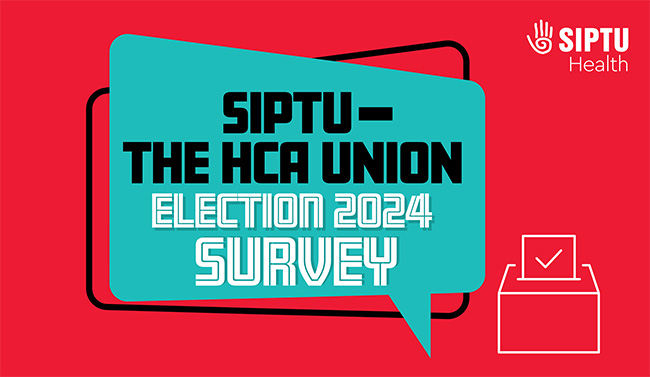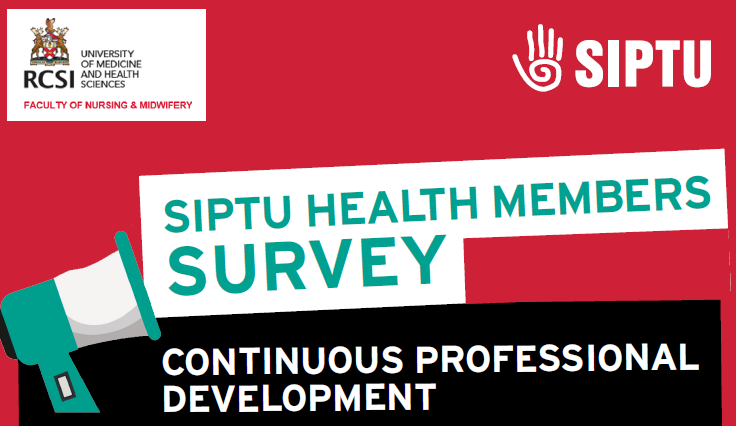HCAs Have Your Say – SIPTU’s Election 2024 Survey
Yesterday, October 29th was the International Day of Care and Support. It’s a day that we take stock and honour the resilience and dedication of care workers across the globe.
From those who care for the elderly to those providing vital health services in our communities, care workers are at the heart of our society’s wellbeing.
It is also a day that we look to the future.
That is why SIPTU, the Union of Health Care Assistants (HCAs) in Ireland, is launching our Election 2024 Survey.
We what to hear about the big issues are impacting HCAs. The survey will inform our Union’s campaign priorities in the upcoming general election; and beyond.
SIPTU represents almost 20,000 HCAs in both public and private healthcare settings, including hospitals, nursing homes, and in the community.
By standing together, SIPTU members have campaigned for; and won, real benefits for healthcare workers in Ireland.
Please take two minutes to fill out our survey here. You don’t need to be a member of SIPTU to participate.
Together, we are stronger.



